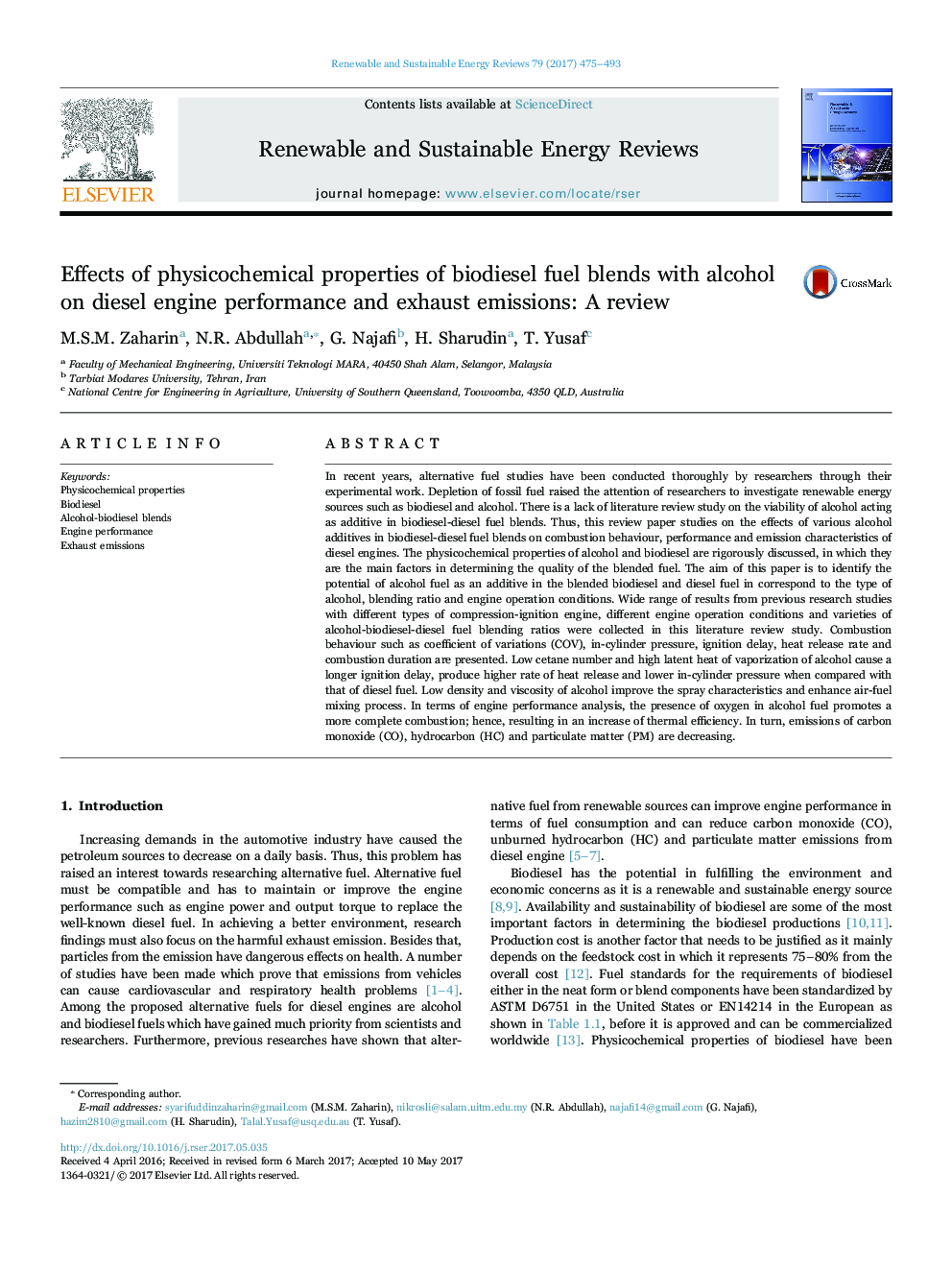| کد مقاله | کد نشریه | سال انتشار | مقاله انگلیسی | نسخه تمام متن |
|---|---|---|---|---|
| 5482581 | 1522307 | 2017 | 19 صفحه PDF | دانلود رایگان |
عنوان انگلیسی مقاله ISI
Effects of physicochemical properties of biodiesel fuel blends with alcohol on diesel engine performance and exhaust emissions: A review
ترجمه فارسی عنوان
اثرات خواص فیزیکی و شیمیایی سوخت بیودیزل با الکل بر عملکرد موتور دیزل و انتشار اگزوز: بررسی
دانلود مقاله + سفارش ترجمه
دانلود مقاله ISI انگلیسی
رایگان برای ایرانیان
کلمات کلیدی
خصوصیات فیزیکوشیمیایی، بیودیزل، مخلوط الکل و بیودیزل، عملکرد موتور، گازهای خروجی اگزوز،
موضوعات مرتبط
مهندسی و علوم پایه
مهندسی انرژی
انرژی های تجدید پذیر، توسعه پایدار و محیط زیست
چکیده انگلیسی
In recent years, alternative fuel studies have been conducted thoroughly by researchers through their experimental work. Depletion of fossil fuel raised the attention of researchers to investigate renewable energy sources such as biodiesel and alcohol. There is a lack of literature review study on the viability of alcohol acting as additive in biodiesel-diesel fuel blends. Thus, this review paper studies on the effects of various alcohol additives in biodiesel-diesel fuel blends on combustion behaviour, performance and emission characteristics of diesel engines. The physicochemical properties of alcohol and biodiesel are rigorously discussed, in which they are the main factors in determining the quality of the blended fuel. The aim of this paper is to identify the potential of alcohol fuel as an additive in the blended biodiesel and diesel fuel in correspond to the type of alcohol, blending ratio and engine operation conditions. Wide range of results from previous research studies with different types of compression-ignition engine, different engine operation conditions and varieties of alcohol-biodiesel-diesel fuel blending ratios were collected in this literature review study. Combustion behaviour such as coefficient of variations (COV), in-cylinder pressure, ignition delay, heat release rate and combustion duration are presented. Low cetane number and high latent heat of vaporization of alcohol cause a longer ignition delay, produce higher rate of heat release and lower in-cylinder pressure when compared with that of diesel fuel. Low density and viscosity of alcohol improve the spray characteristics and enhance air-fuel mixing process. In terms of engine performance analysis, the presence of oxygen in alcohol fuel promotes a more complete combustion; hence, resulting in an increase of thermal efficiency. In turn, emissions of carbon monoxide (CO), hydrocarbon (HC) and particulate matter (PM) are decreasing.
ناشر
Database: Elsevier - ScienceDirect (ساینس دایرکت)
Journal: Renewable and Sustainable Energy Reviews - Volume 79, November 2017, Pages 475-493
Journal: Renewable and Sustainable Energy Reviews - Volume 79, November 2017, Pages 475-493
نویسندگان
M.S.M. Zaharin, N.R. Abdullah, G. Najafi, H. Sharudin, T. Yusaf,
